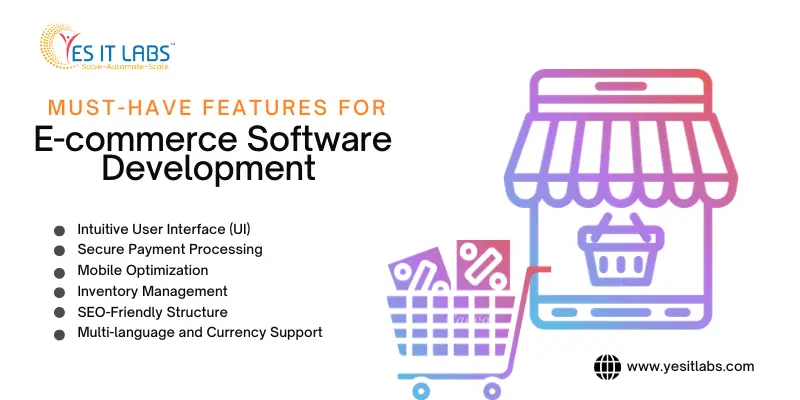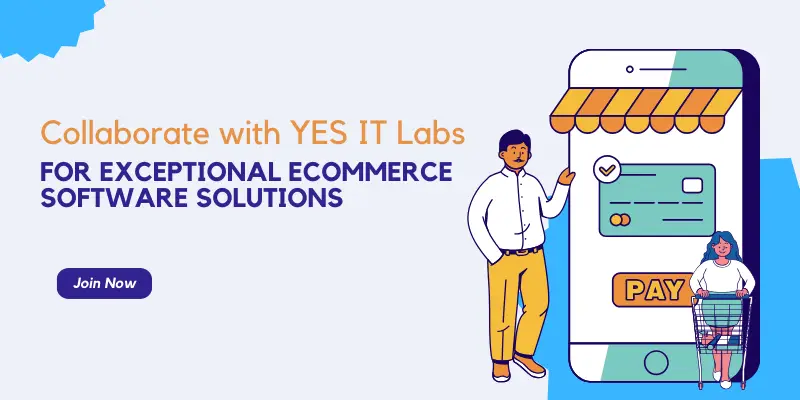 By Admin
By Admin Unveiling the Future: eCommerce Trends to Expect in 2024
Introduction:
Hey there, fellow eCommerce enthusiasts! As we dive into 2024, the world of online shopping is evolving faster than ever. From the way we discover products to the technologies transforming the shopping experience, eCommerce continues to shape our digital landscape. In this blog, we’ll unravel the upcoming eCommerce trends to keep you in the loop and ensure your online store stays ahead of the game.
Personalization Takes the Spotlight:
In 2024, personalization is not just a buzzword but a necessity. Customers crave unique and tailored experiences, and eCommerce websites are gearing up to deliver just that. Advanced AI algorithms analyze customer behavior, preferences, and purchase history to provide personalized product recommendations, making the online shopping journey more engaging and satisfying.
Augmented Reality (AR) Enhancements:
Say goodbye to doubts about product appearances. Augmented Reality is set to revolutionize the eCommerce industry by allowing customers to virtually try on products before making a purchase. Whether it’s clothing, furniture, or even makeup, AR ensures a more confident buying decision, reducing the rate of product returns and enhancing customer satisfaction.
Voice Commerce: The Rise of Conversational Shopping:
“Hey Siri, order me a new pair of running shoes.” Voice commerce is gaining momentum, enabling customers to shop hands-free using voice-activated devices like smart speakers and virtual assistants. E-commerce websites are integrating voice search capabilities, making it easier for users to find products and complete transactions effortlessly.
Sustainable Shopping Becomes Mainstream:
As environmental consciousness grows, sustainability is no longer just a trend but a necessity. eCommerce businesses are incorporating eco-friendly practices, from sustainable packaging to offering ethically sourced products. Consumers are becoming more mindful of their environmental impact, driving the demand for eco-conscious eCommerce practices.
Integration of Social Commerce:
Social media platforms are no longer just for sharing pictures and updates; they’re becoming major players in the eCommerce game. In 2024, expect a seamless integration of social commerce, allowing users to discover and purchase products without leaving their favorite social platforms. eCommerce websites are optimizing for social selling, leveraging the power of influencers and user-generated content.
Instant Gratification with Same-Day Delivery:
The need for speed continues to dominate the eCommerce landscape. In 2024, same-day delivery services are becoming more prevalent, meeting the growing demand for instant gratification. E-commerce giants and small businesses alike are investing in efficient logistics and local fulfillment centers to ensure quick and reliable delivery options for their customers.
Mobile Commerce Dominance:
The dominance of mobile commerce is not a new trend, but it continues to gain momentum. With the majority of online traffic coming from mobile devices, eCommerce websites must prioritize mobile optimization. E-commerce web developers will focus on creating responsive designs and optimizing mobile performance to meet the demands of the ever-growing mobile user base.
Enhanced Payment Options:
The future of eCommerce will see an expansion of payment options to accommodate diverse consumer preferences. Cryptocurrency payments, buy-now-pay-later services, and digital wallets will become more mainstream. E-commerce website development services will need to adapt to include a variety of payment methods to meet the evolving needs of online shoppers.
Now, let’s address some burning questions about the future of eCommerce:
1. What is the future of e-commerce?
The future of eCommerce lies in a seamless blend of technology and user-centric experiences. Personalization, augmented reality, sustainability, social commerce, and speedy delivery are some of the key trends shaping the future. As technology continues to advance, we can anticipate more innovative solutions that enhance the online shopping journey and redefine customer expectations.
2. What is the next big thing in e-commerce?
Voice commerce and augmented reality are poised to be the next big things in eCommerce. As customers seek more convenient and immersive shopping experiences, these technologies offer novel ways to engage with products and make purchasing decisions. Integrating voice-activated devices and AR features into eCommerce websites will likely become a standard practice, setting the stage for a more interactive and personalized shopping experience.
Conclusion:
In the fast-paced world of eCommerce, staying ahead of the curve is essential for success. The trends mentioned above are not just predictions; they are the driving forces shaping the eCommerce landscape in 2024. Whether you’re a business owner, an eCommerce web developer, or someone who simply loves online shopping, embracing these trends will ensure that your digital storefront remains not only relevant but also a leader in the ever-evolving world of eCommerce.
As we navigate the exciting journey ahead, keep your eyes on the horizon, stay innovative, and watch your eCommerce venture thrive in the years to come. Happy selling!
Tags: ecommerce development company, ecommerce software development company, ecommerce software development services, eCommerce web developer, ecommerce website development services usa
Latest Resources
Top Frameworks for Cross-Platform App Development in 2025
January 22, 2025
A Guide to Types of Artificial Intelligence (AI)
January 14, 2025
Key Benefits of React Native App Development
January 7, 2025
Leveraging AI in Startup Software Development: Trends and Tips
December 30, 2024
Mobile Optimization for Shopify Apps: Best Practices
December 23, 2024



















 Services
Services

